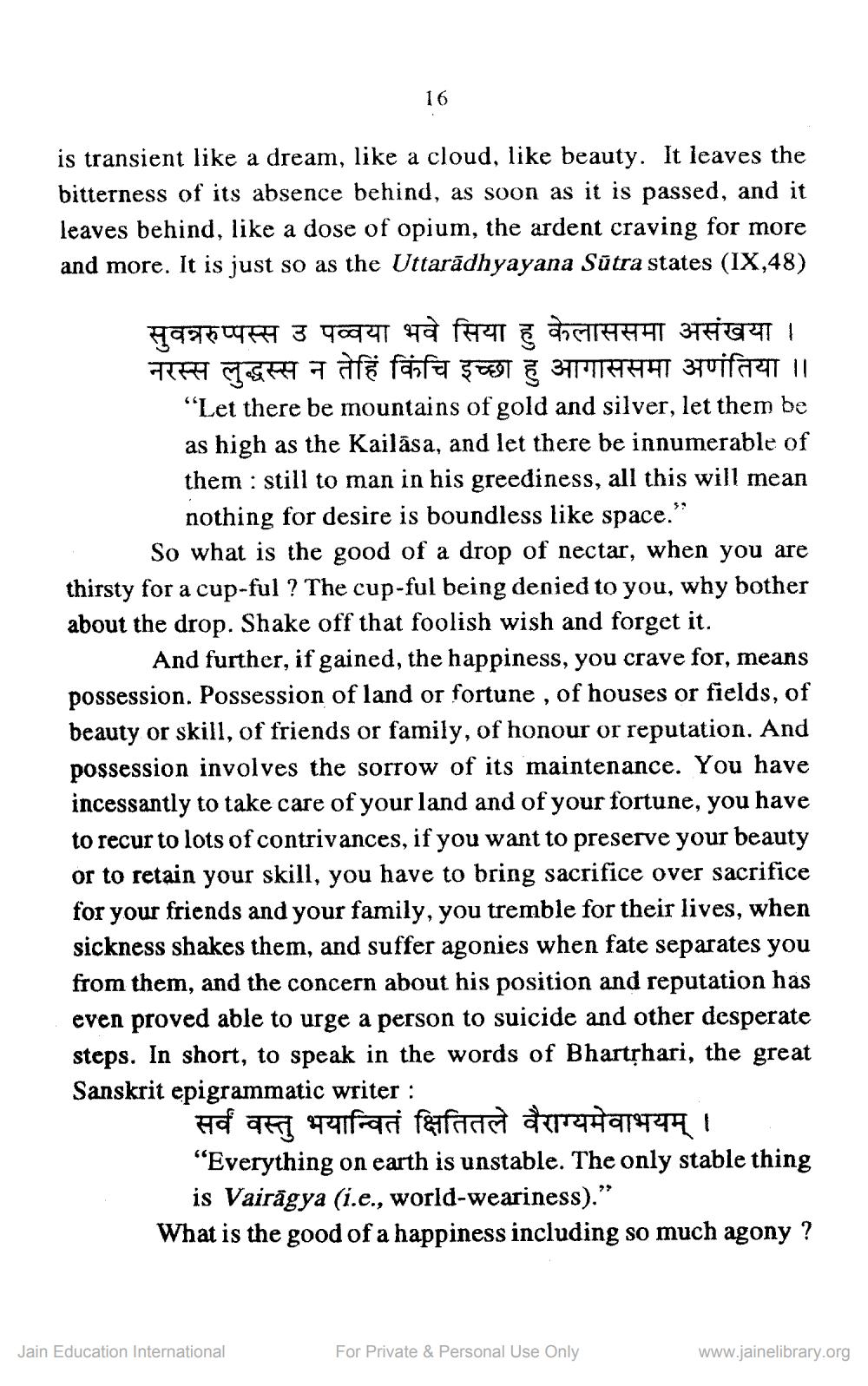________________
16
is transient like a dream, like a cloud, like beauty. It leaves the bitterness of its absence behind, as soon as it is passed, and it leaves behind, like a dose of opium, the ardent craving for more and more. It is just so as the Uttaradhyayana Sūtra states (IX,48)
सुवन्नरुप्पस्स उ पव्वया भवे सिया हु केलाससमा असंखया । नरस्स लुद्धस्स न तेहिं किंचि इच्छा हु आगाससमा अणंतिया ।।
"Let there be mountains of gold and silver, let them be as high as the Kailasa, and let there be innumerable of them still to man in his greediness, all this will mean nothing for desire is boundless like space."
So what is the good of a drop of nectar, when you are thirsty for a cup-ful? The cup-ful being denied to you, why bother about the drop. Shake off that foolish wish and forget it.
And further, if gained, the happiness, you crave for, means possession. Possession of land or fortune, of houses or fields, of beauty or skill, of friends or family, of honour or reputation. And possession involves the sorrow of its maintenance. You have incessantly to take care of your land and of your fortune, you have to recur to lots of contrivances, if you want to preserve your beauty or to retain your skill, you have to bring sacrifice over sacrifice for your friends and your family, you tremble for their lives, when sickness shakes them, and suffer agonies when fate separates you from them, and the concern about his position and reputation has even proved able to urge a person to suicide and other desperate steps. In short, to speak in the words of Bhartṛhari, the great Sanskrit epigrammatic writer :
सर्वं वस्तु भयान्वितं क्षितितले वैराग्यमेवाभयम् ।
"Everything on earth is unstable. The only stable thing is Vairagya (i.e., world-weariness)."
What is the good of a happiness including so much agony ?
Jain Education International
For Private & Personal Use Only
www.jainelibrary.org




